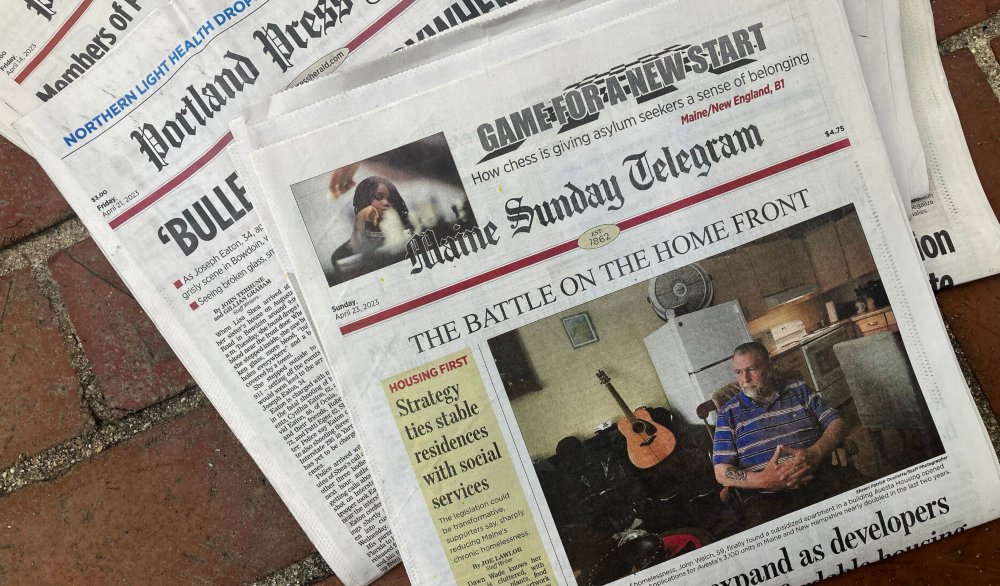Last week’s acquisition of some 20 newspapers in coastal Maine may offer an alternative model for rescuing local journalism in the Northwest and around the country.
The Portland Press Herald, a midsized newspaper previously owned by Seattle Times’ Blethen family, reported this week that a national nonprofit has agreed to take over ownership of that paper and some 20 smaller dailies and weeklies in eastern Maine.
Terms of the deal were not disclosed, but the announcement was greeted enthusiastically by journalists, civic leaders, and others worried about local news teetering on the brink of extinction.
According to the Press Herald, the National Trust for Local News, a two-year-old nonprofit with a tiny staff and budget, has agreed to the deal with Masthead Maine, the Maine company which has owned the newspapers for several years.
With little or no assets, the fledgling Trust clearly is in no position to write a check for established businesses involving significant assets and some 400 employees, many of them working on union contracts. Observers speculate that the next step may be conversion to some form of community ownership .
The transaction appears to be similar to the Trust’s recent acquisition of a daily newspaper and more than 20 local weeklies in suburban Denver, all part of the Colorado News Conservancy. In that case, the Trust facilitated the transfer.
The 160-year-old Press Herald circulates statewide and is Maine’s best-known source of news. It has changed hands several times in recent years, including more than a decade under the ownership (1998 to 2011) of the Blethen family that has controlled the Seattle Times for well over a century and has ancestral roots in Maine.
Like virtually all newspapers, the Press Herald thrived through the 1980s and ’90s, banking annual profits of 20 percent or more. But local newspapers failed to anticipate the effects of the Internet, which competed as a source of information and advertising revenue.
The result has been devastating to newspapers and to the communities that rely on them. More than 2,500 papers have closed down since 2005. And surviving papers have endured radical cuts in staff, budgets, advertising, and readership. Some rural areas have become “news deserts,” with no reliable source of local news.
Across the nation, journalists are experimenting with alternatives, including this Post Alley site – a no-budget digital magazine produced mostly by retired and displaced newspaper and broadcast editors and reporters who miss reporting and writing.
Other models have cropped up. Public broadcasting, famous for chronic on-air fundraising appeals, seems like unlikely hero – especially as broadcasters experience their own declines in membership and donations. But there have been increasing collaborations and a few outright acquisitions. Most notably, the storied Chicago Sun Times has been acquired by WBEZ public radio in Chicago. Locally, Seattle’s KCTS 9 has taken over Crosscut.com, the online news site.
Jean Godden reported here earlier this week on Cascadia Daily News, a Bellingham startup that launched last year, producing digital and print editions with a mix of breaking news, sports, photos, and in-depth analysis. Cascadia is designed as a for-profit enterprise, but is heavily subsidized by David Syre, a successful local businessman. Those models depend either on generous community fundraising or a civic-minded jillionaire, neither of which is a comfortable longterm strategy.
But, at least for now, it appears that readers in coastal Maine will continue to get their newspapers.

One of the ways the owners of Seattle Times shot themselves in the foot was the purchase of these Maine papers, later sold at a deep loss. The Blethens may have come from Maine, but the purchase, far away from Seattle, never made sense. One irony is that the new ownership group is a non-profit, since the Seattle Times is now very dependent on nonprofit funding for special task forces.